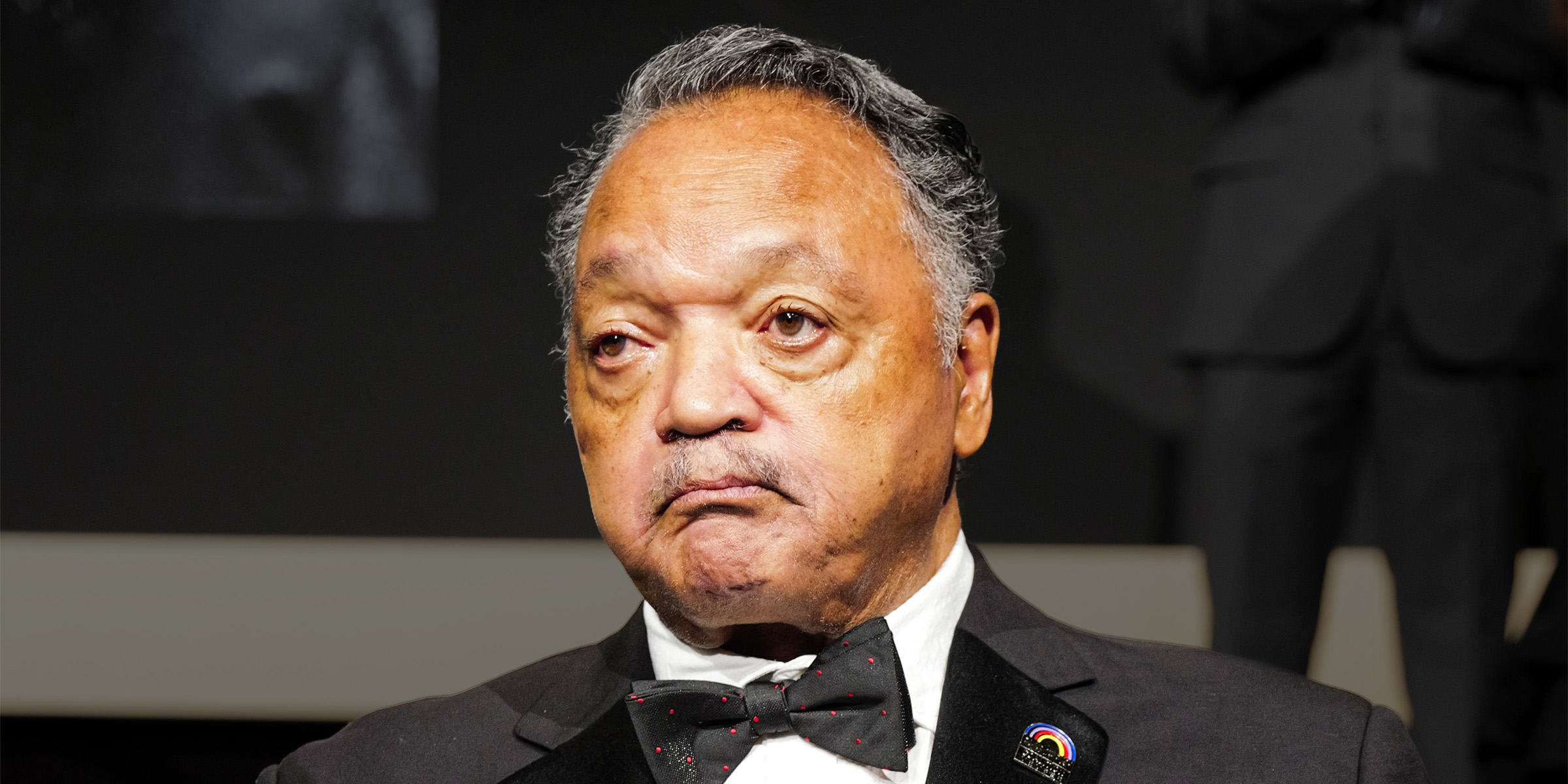
Rev. Jesse Jackson Hospitalized to Manage a Serious Health Condition
The major figure in American civil rights has been hospitalized in Chicago, as his family speaks out and new details emerge about a serious condition he's been managing privately for years.
Rev. Jesse Jackson has been hospitalized in Chicago, sending shockwaves through civil rights circles. The 84-year-old icon was admitted for urgent medical care tied to a condition he has managed privately for more than a decade, his organization confirmed.
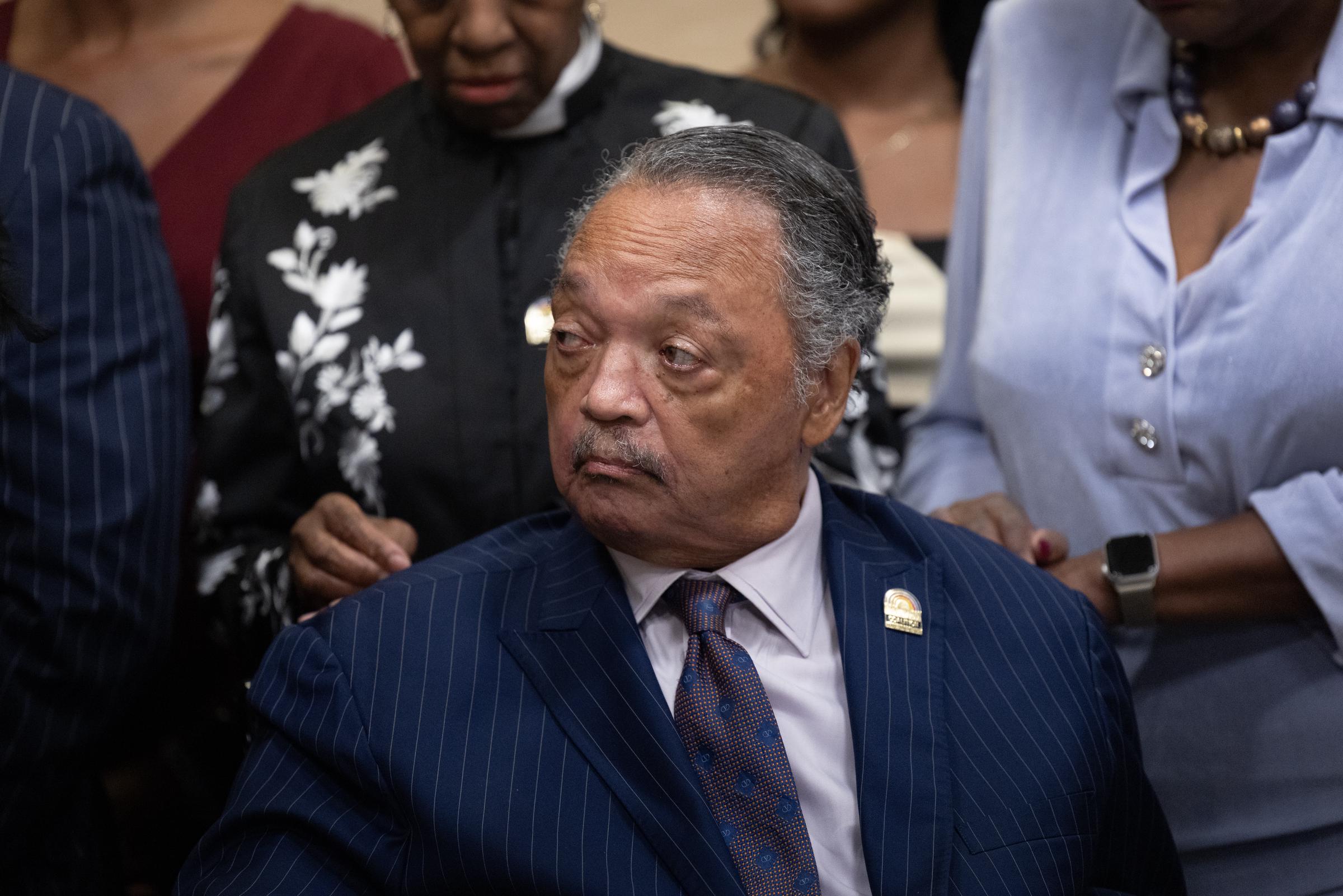
Rev. Jesse Jackson visits with guests at the National Bar Association's annual convention on July 31, 2025, in Chicago, Illinois | Source: Getty Images
NBC Chicago reported Jackson's hospitalization through a source close to the matter, revealing that his admission was prompted by escalating health issues that have quietly shadowed him for over 10 years.
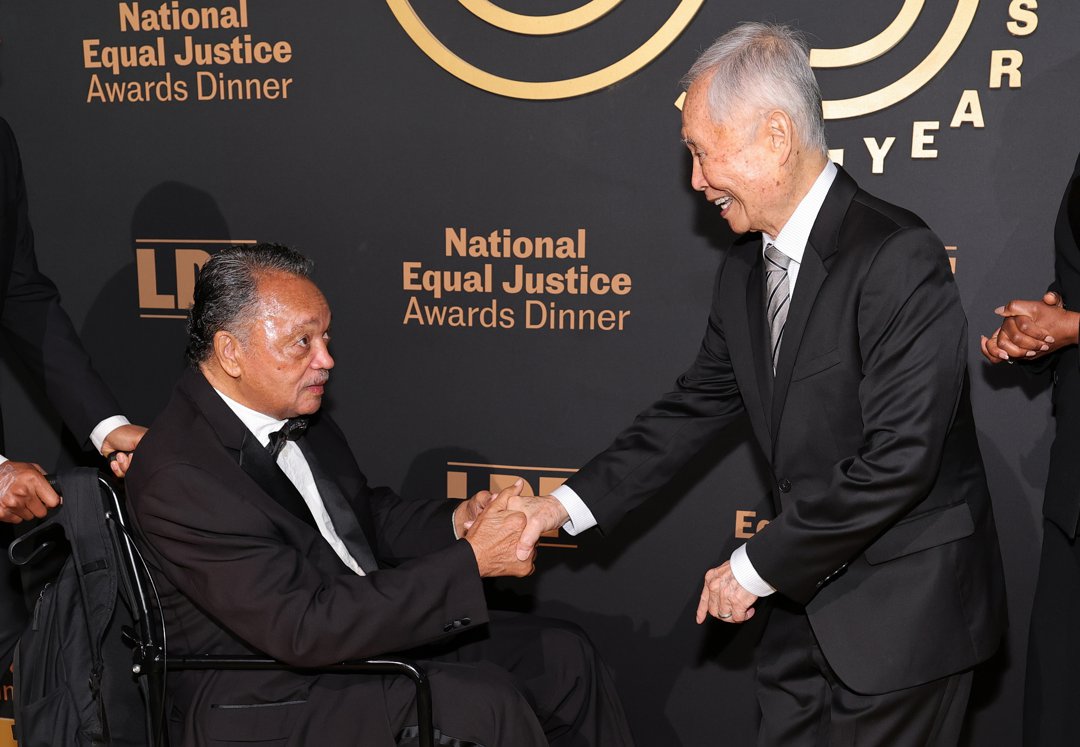
Jesse Jackson and George Takei attend the 37th National Equal Justice Awards Dinner at The Glasshouse on May 15, 2025 | Source: Getty Images
The Rainbow PUSH Coalition issued a statement confirming that Jackson is currently under observation for Progressive Supranuclear Palsy, a rare brain disorder.
The group disclosed that while doctors had originally believed Jackson had Parkinson's disease, they officially diagnosed PSP in April of this year. "Jackson's family appreciates all prayers at this time," the coalition's message added.
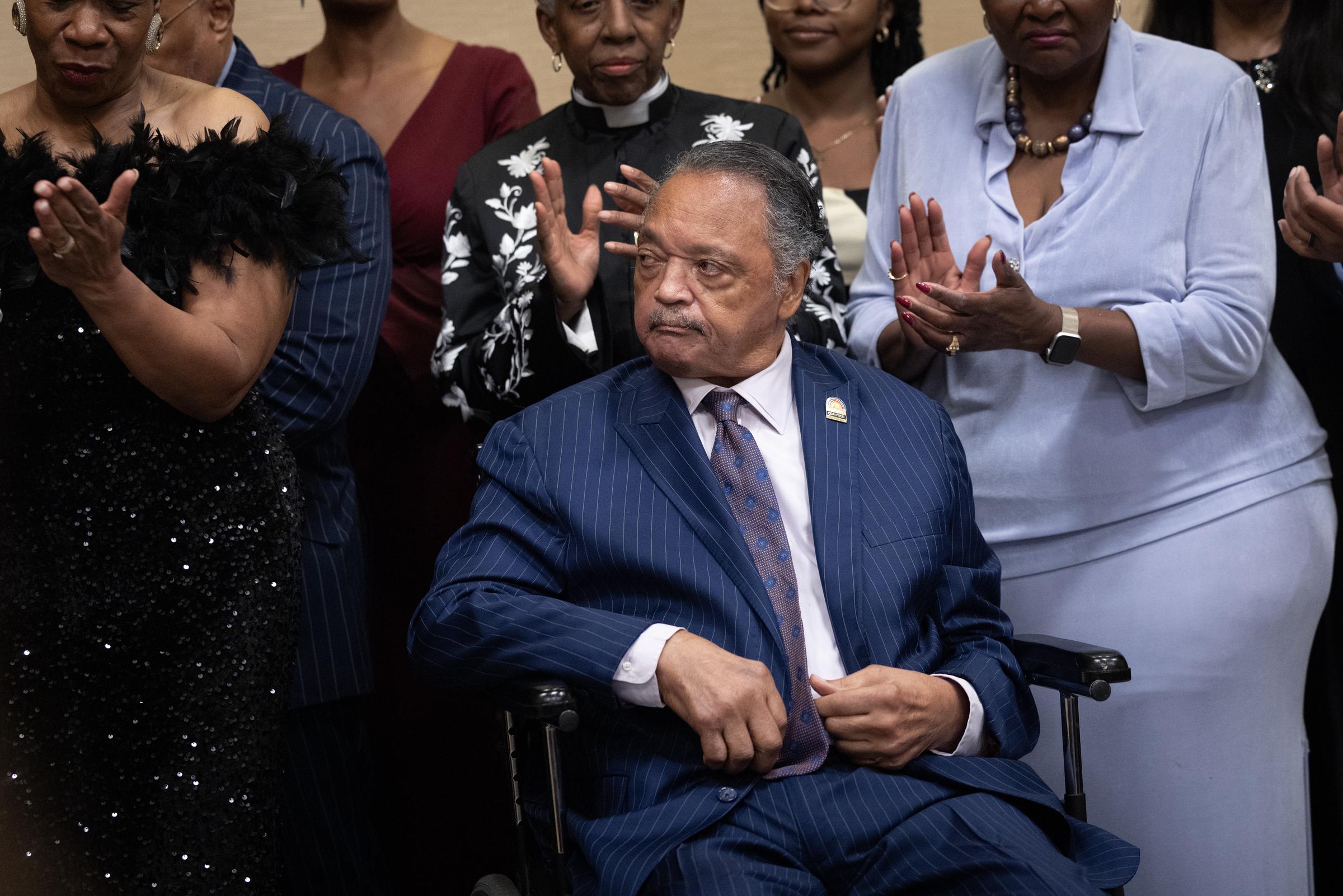
Rev. Jesse Jackson visits with guests at the National Bar Association's annual convention on July 31, 2025, in Chicago, Illinois | Source: Getty Images
Progressive Supranuclear Palsy, or PSP, is a devastating neurological condition that mimics Parkinson's but differs significantly. Those affected experience movement difficulties similar to Parkinson's patients, but they also lose the ability to move their eyes normally— specifically, they cannot voluntarily direct their gaze downward.
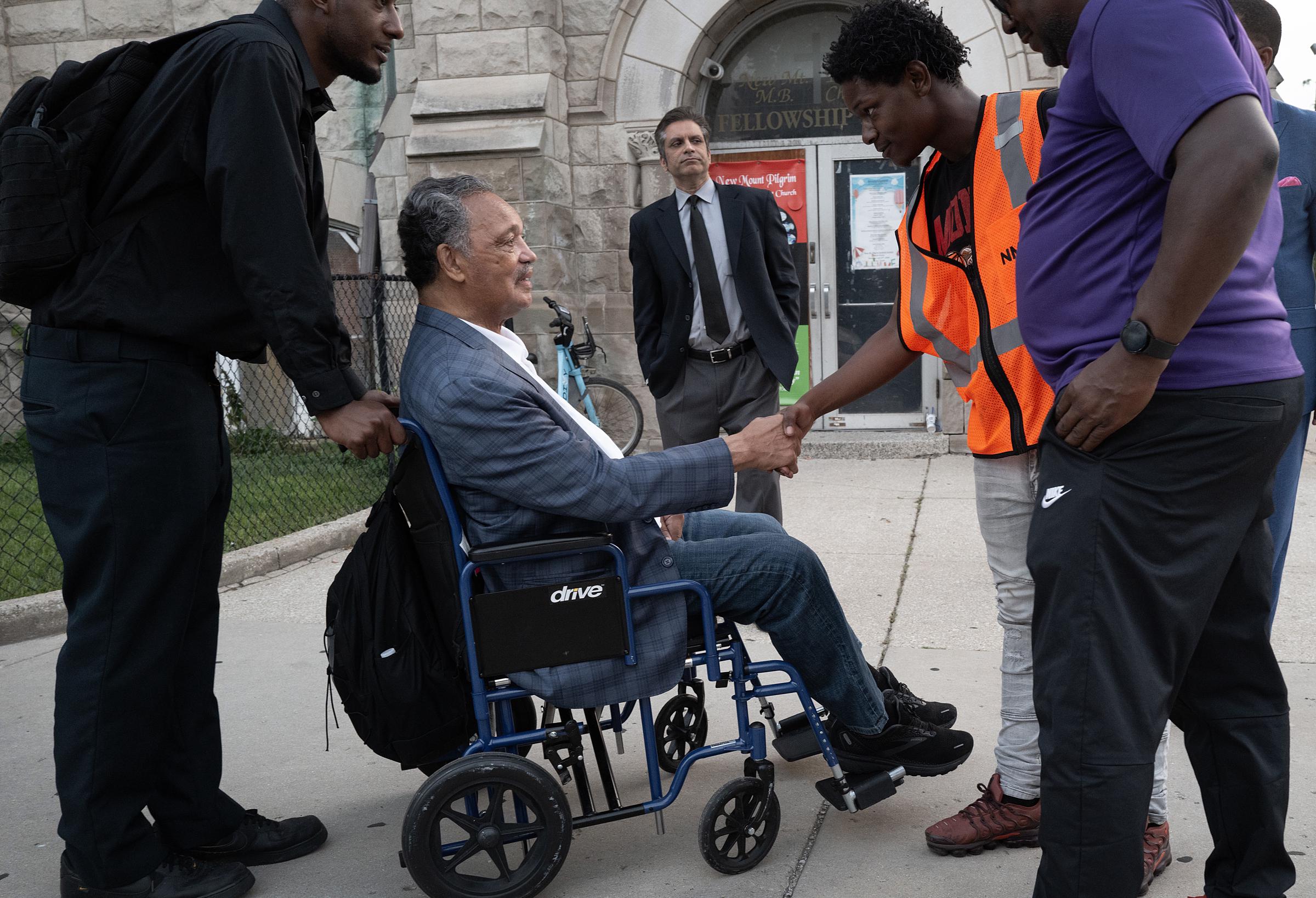
Jesse Jackson is greeted as he leaves a rally for Sonya Massey at New Mount Pilgrim Church on July 30, 2024 | Source: Getty Images
The disease impacts both sides of the body simultaneously, which distinguishes it from Parkinson's. Unlike Parkinson's, shaking is uncommon, but patients face overwhelming challenges with balance, speech, swallowing, and memory. These complications are what make the disease uniquely aggressive.
Doctors often mistake PSP for Parkinson's in the early stages, contributing to delayed or inaccurate diagnoses. The cause remains unknown, and traditional Parkinson's medications offer little relief. For now, treatment centers on family education and support to ease the toll of the disease.
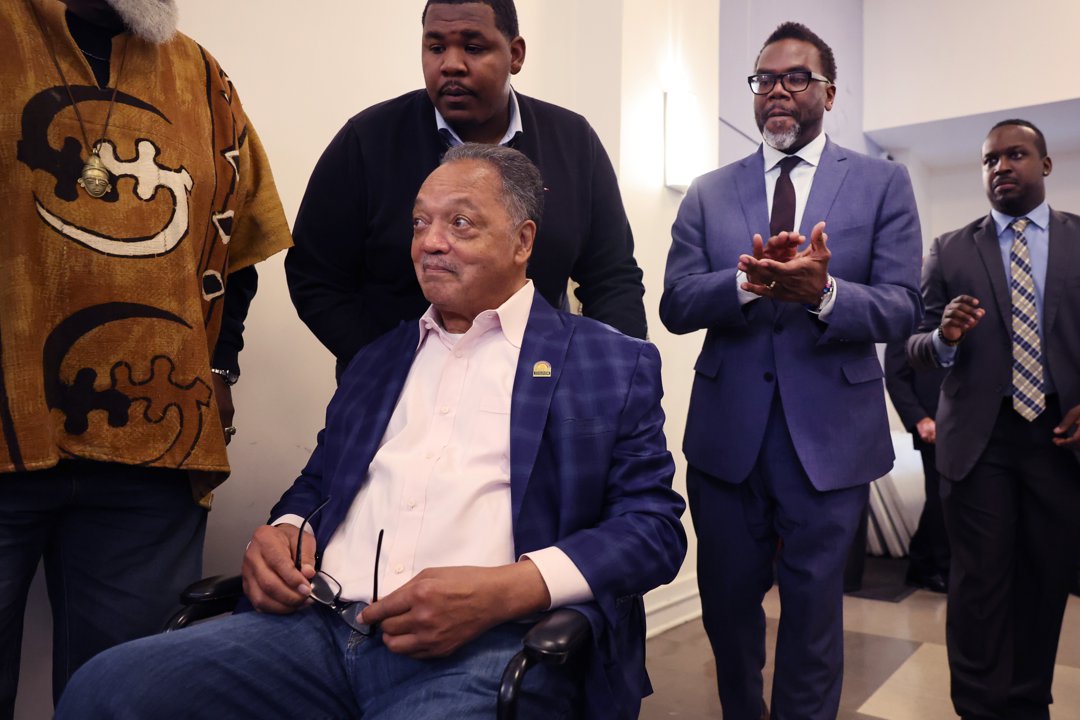
Reverend Jesse Jackson attends an event at the Rainbow/PUSH Coalition headquarters on March 17, 2023 | Source: Getty Images
Jackson first addressed his health publicly in 2017 through a powerful and personal statement. At 76, he admitted that years of physical decline had finally forced him to speak out.
"Now in the latter years of my life […] I find it increasingly difficult to perform routine tasks," he wrote. "My family and I began to notice changes […] For a while, I resisted interrupting my work to visit a doctor. But as my daily physical struggles intensified, I could no longer ignore the symptoms."
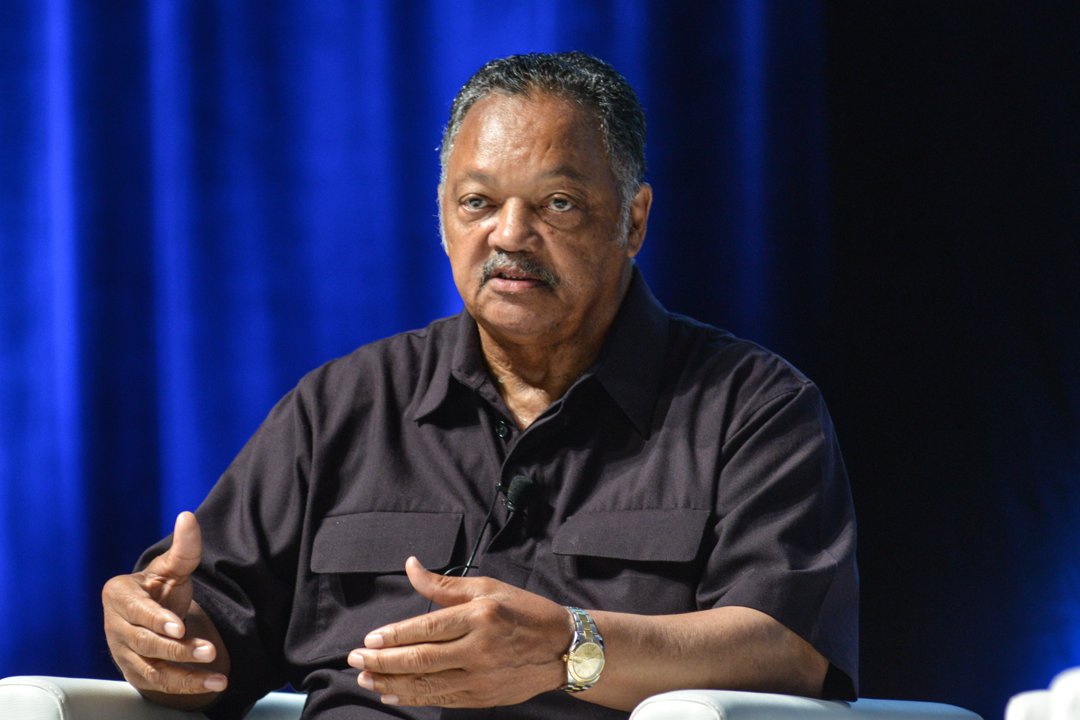
Jesse Jackson attends the Cannes Lions Festival 2017 on June 20, 2017 in France | Source: Getty Images
His doctors originally told him he had Parkinson's, the same illness that claimed his father's life. "Recognition of the effects of this disease on me has been painful," he said. "For me, a Parkinson's diagnosis is not a stop sign […] I steadfastly affirm that I would rather wear out than rust out."

Jesse Jackson is honored onstage during the Democratic National Convention (DNC) on August 19, 2024 | Source: Getty Images
Jackson did not see his diagnosis as the end. Instead, he saw it as a new mission. "This diagnosis is personal, but it is more than that," he wrote. "It is an opportunity for me to use my voice to help in finding a cure."
"I will continue to try to instill hope in the hopeless […] and free innocent prisoners around the world," he asserted. Even as the disease crept through his body, Jackson continued speaking at rallies, demanding voting rights reform and calling for criminal justice change. He worked on his memoir and made appearances, even as walking became difficult.
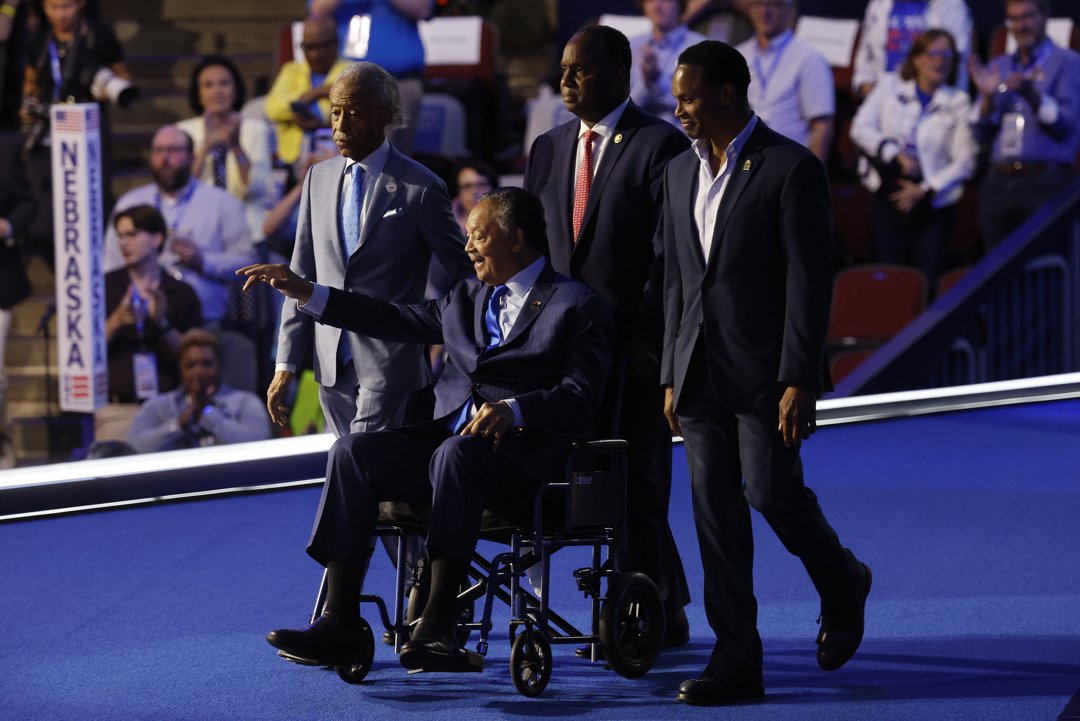
Jesse Jackson waves onstage during the Democratic National Convention (DNC) on August 19, 2024 | Source: Getty Images
Jackson's battle for justice began when he was just 18. In 1960, he was arrested in Greenville, South Carolina, for attempting to use a whites-only public library. "That day changed my life forever," he later recalled. "I lost my fear of being jailed for a righteous cause."
He attended the Chicago Theological Seminary, earned his ordination, and emerged as a powerful voice in the city's religious and political scenes. He clashed with powerful mayors but never stopped fighting for his community.
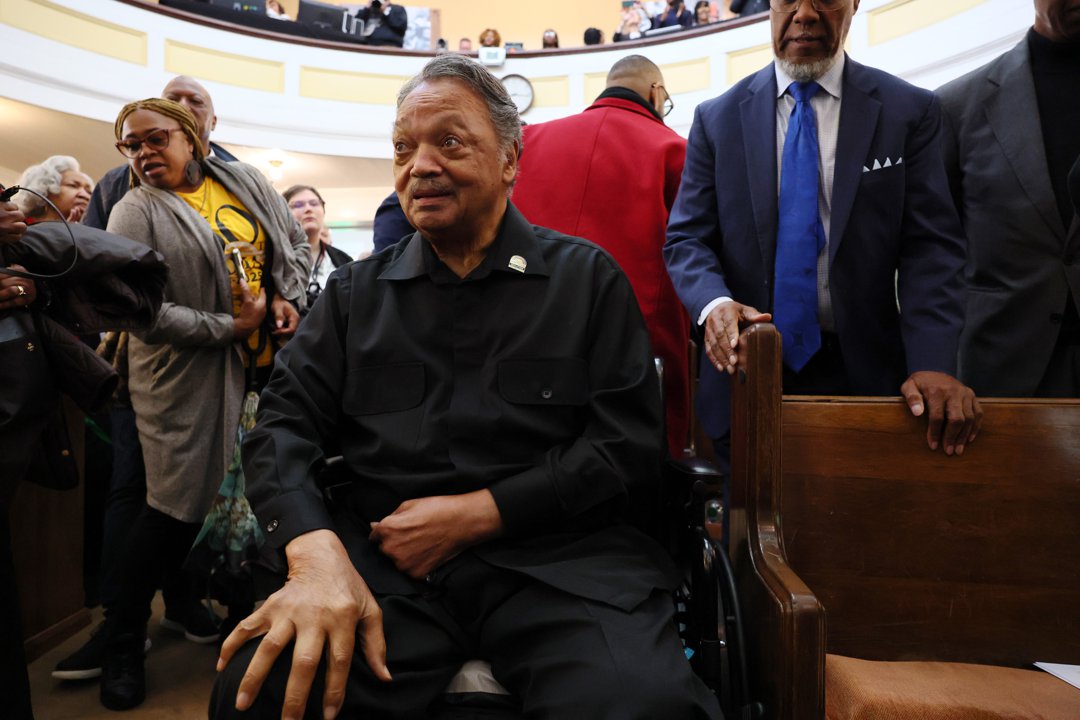
Jesse Jackson attends a Sunday church service at Tabernacle Baptist Church on March 9, 2025 | Source: Getty Images
In 1984, Jackson shattered political barriers when he launched a presidential campaign. It was the first major run for the White House by an African American candidate. He ran again in 1988, winning 11 primaries and bringing the country closer to what many thought was impossible.
His campaigns brought not only attention but also danger. Jackson received more death threats than any candidate before him and was placed under Secret Service protection. Still, he pressed on.
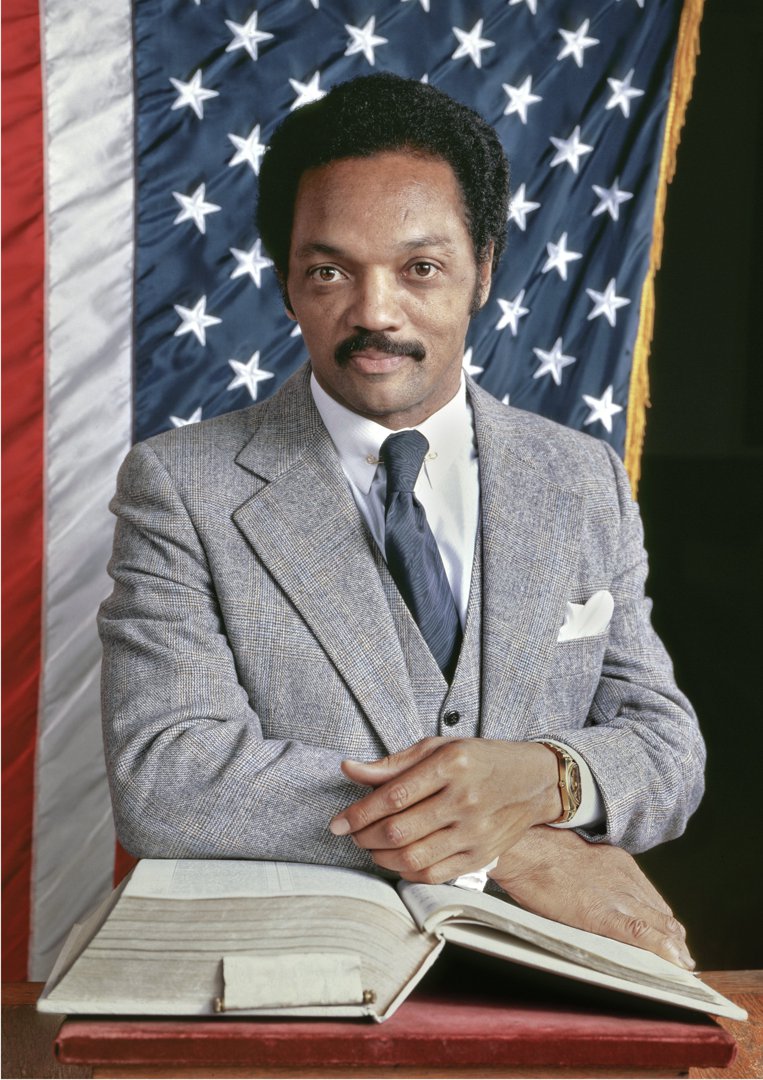
Jesse Jackson poses for a portrait in 1984 in Tallahassee, Florida | Source: Getty Images
Jackson did not limit his activism to American soil. He spoke out for Palestinian rights, fought against apartheid in South Africa, and called tirelessly for Nelson Mandela's release. In 1991, he became a Washington, D.C. Senator.
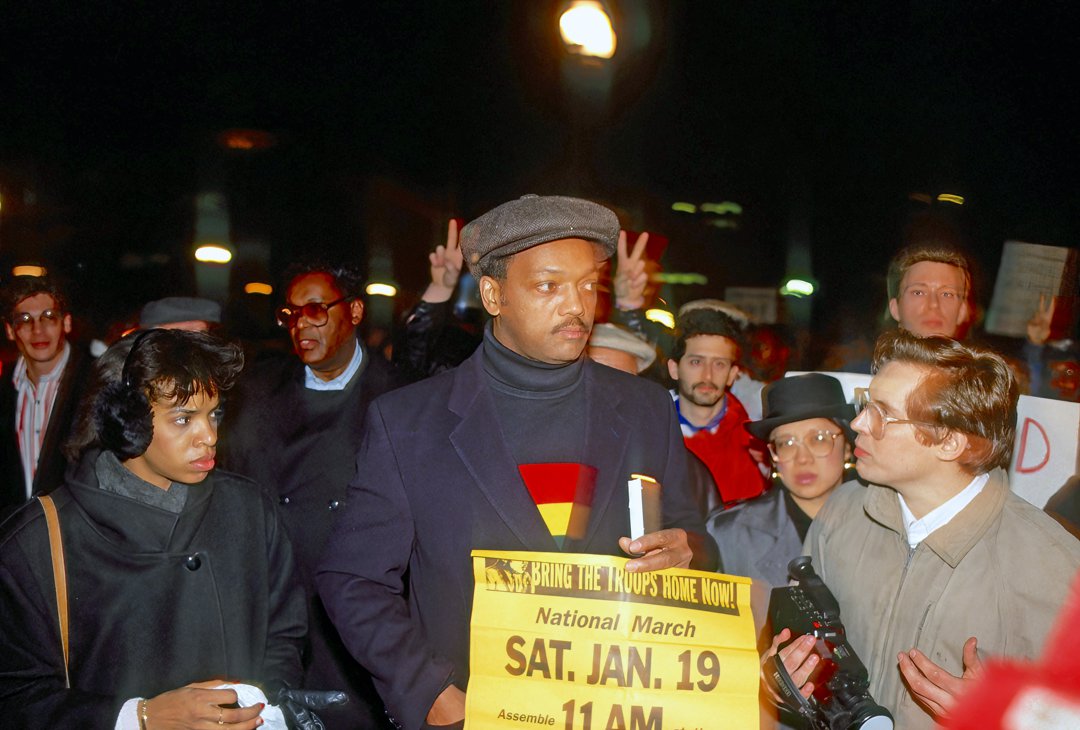
Jesse Jackson marches in an anti-war demonstration on January 15, 1991 | Source: Getty Images
In 2000, President Bill Clinton awarded him the Presidential Medal of Freedom, the nation's highest civilian honor.
He merged his two major organizations into the Rainbow PUSH Coalition, a powerful group that remains active in cities across the country.
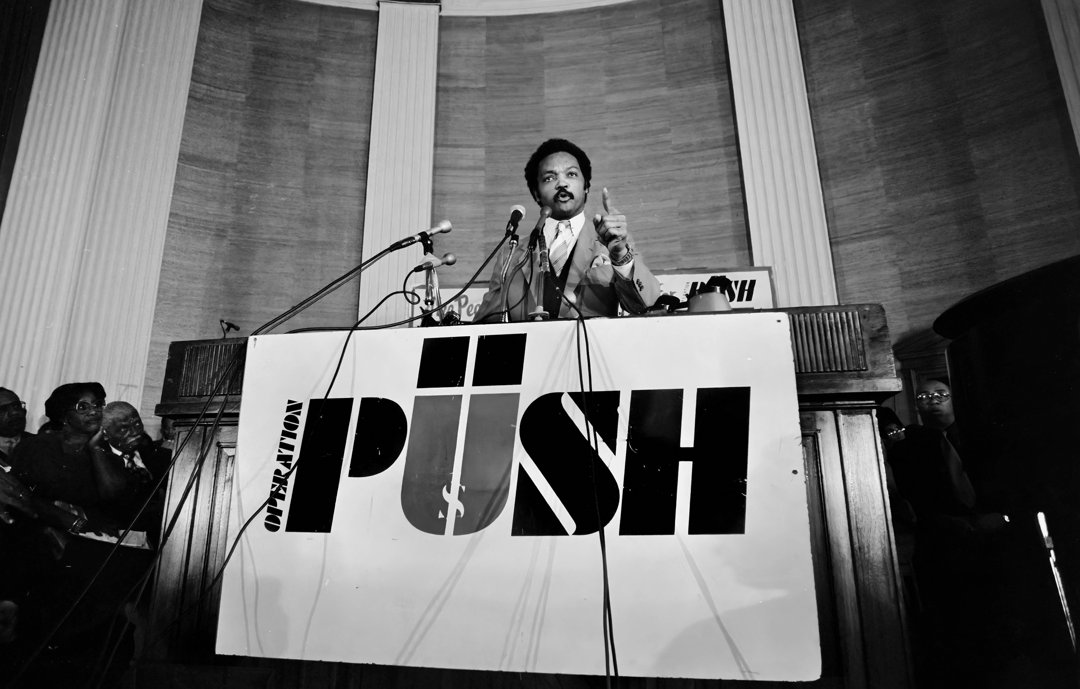
Jesse Jackson speaks from a lectern at the headquarters of Operation PUSH on July 17, 1981 | Source: Getty Images
Jackson's 2017 health diagnosis didn't sideline him from activism. He continued pushing for expanded voting rights and joined demands for criminal justice reforms after George Floyd's killing in Minneapolis. Although his public presence gradually diminished, his voice remained part of social justice movements.
After leading Rainbow PUSH for decades, Jackson relinquished his leadership role in 2023. His public activities have been limited since then as he has focused on personal matters and family.
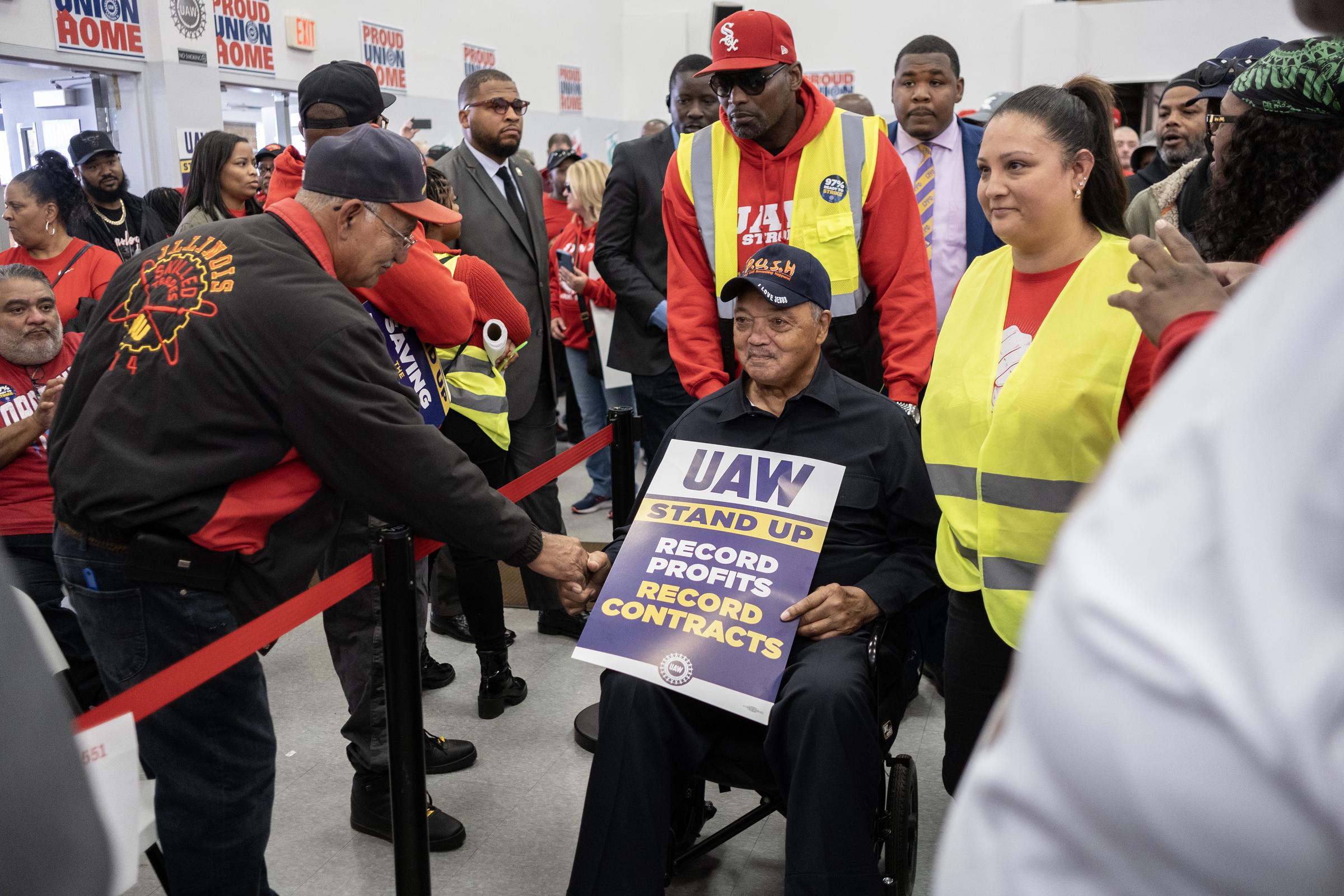
Reverend Jessie Jackson attends a rally in support of the labor union strike on October 7, 2023 | Source: Getty Images
Jackson has often credited his wife, Jackie, as the anchor of his life and legacy. They have been married for more than 60 years. "Without her, I would never have had a family nor been able to make the contribution to our struggle," he once said.
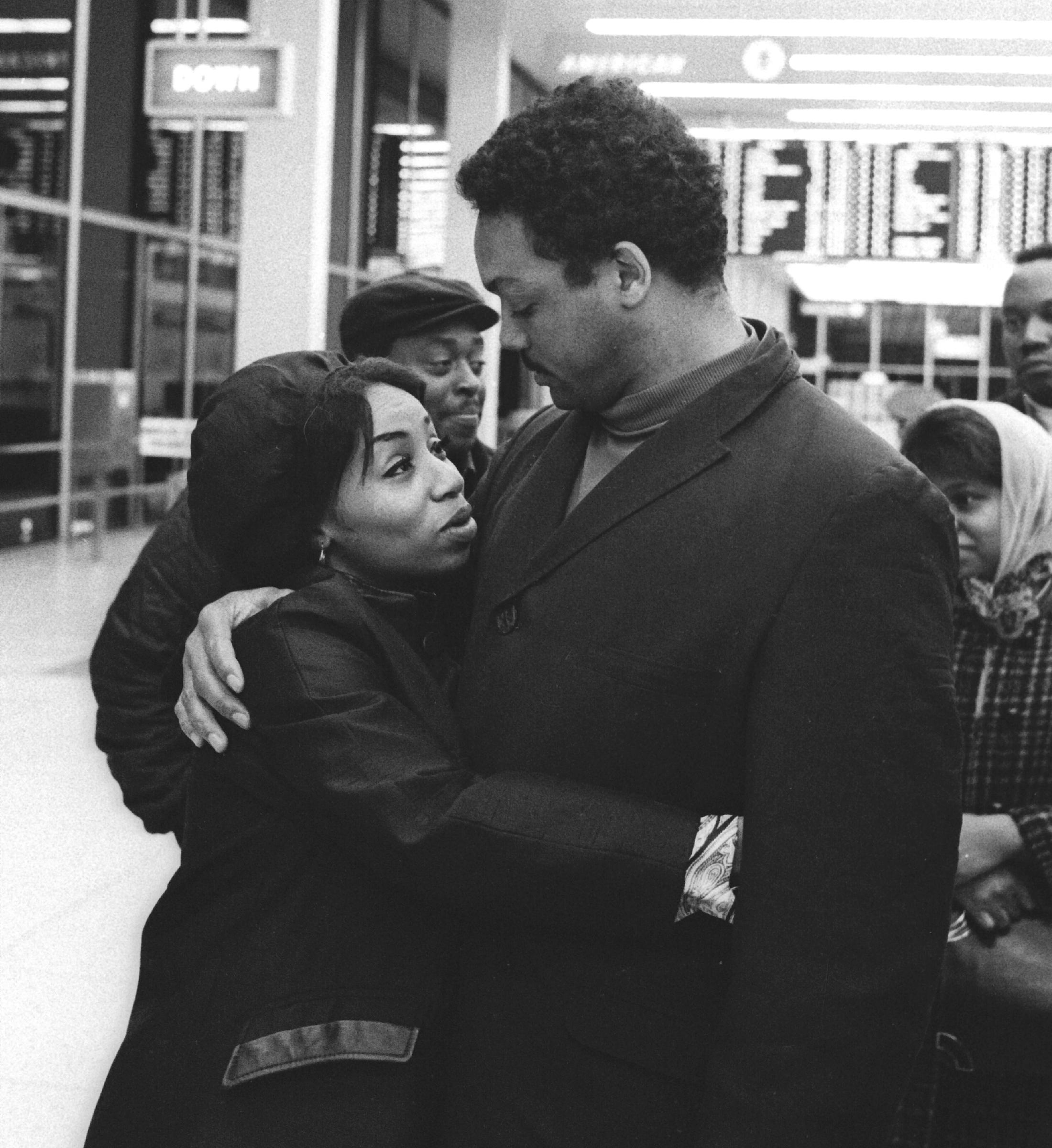
Jesse Jackson embraces his wife Jackie in O'Hare Airport on the day after the assassination of Dr. Martin Luther King Jr, in Chicago, Illinois, on April 5, 1968 | Source: Getty Images
When asked about his most valued possessions, he said, "my ordination papers, my college diploma, and the Presidential Medal of Freedom." When asked about his proudest accomplishment, he shared, "Surviving as a long-distance runner. A life of service now spanning more than 50 years."
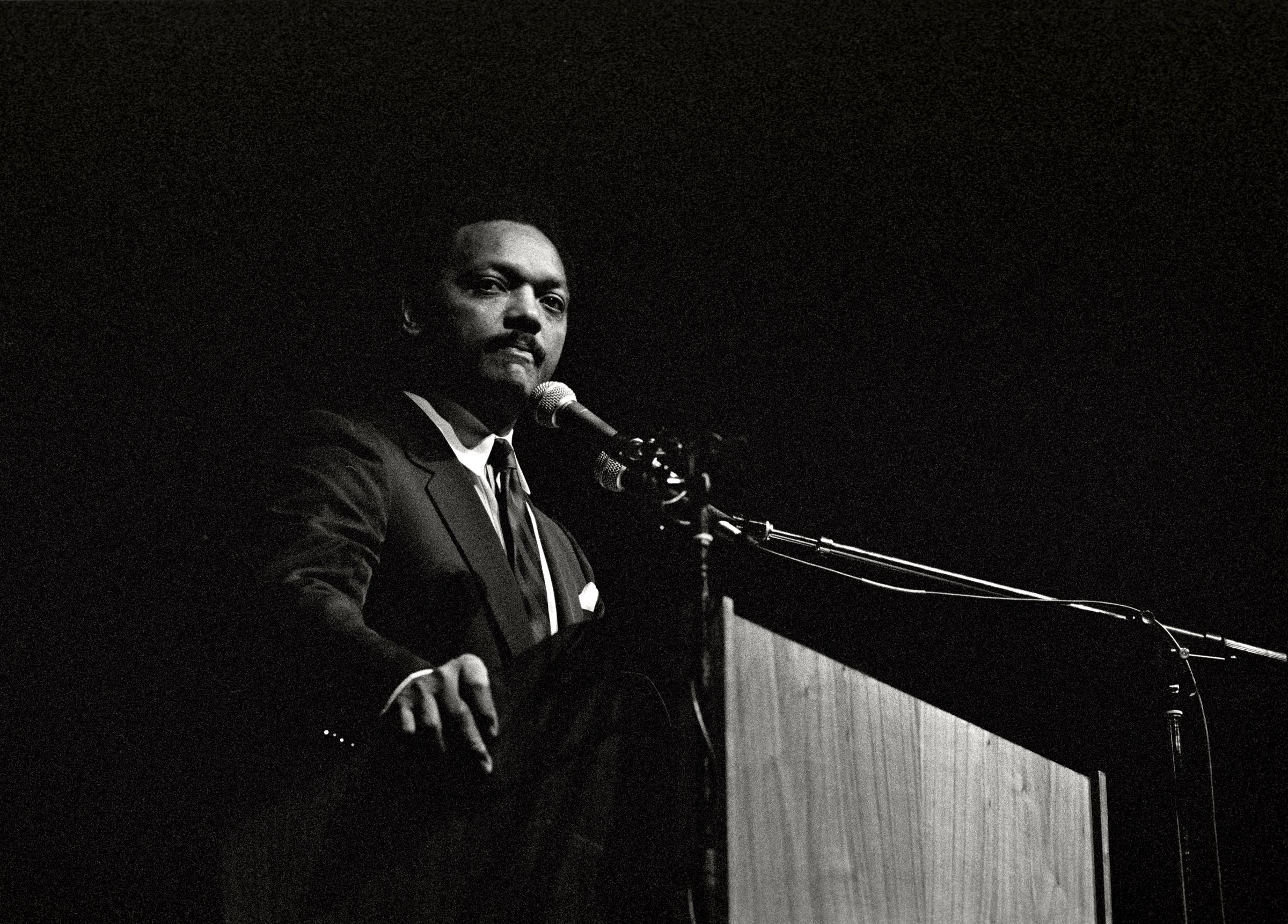
Reverend Jesse Jackson speaks to a Democratic gathering at the Cheyenne Civic Center on April 20, 1989 | Source: Getty Images
Jackson's signature saying, "Keep Hope Alive!" encapsulates his philosophy of persistence and optimism. That hope was visible when he wept at Chicago's Grant Park watching Barack Obama's 2008 presidential victory, witnessing history as America elected its first Black president.
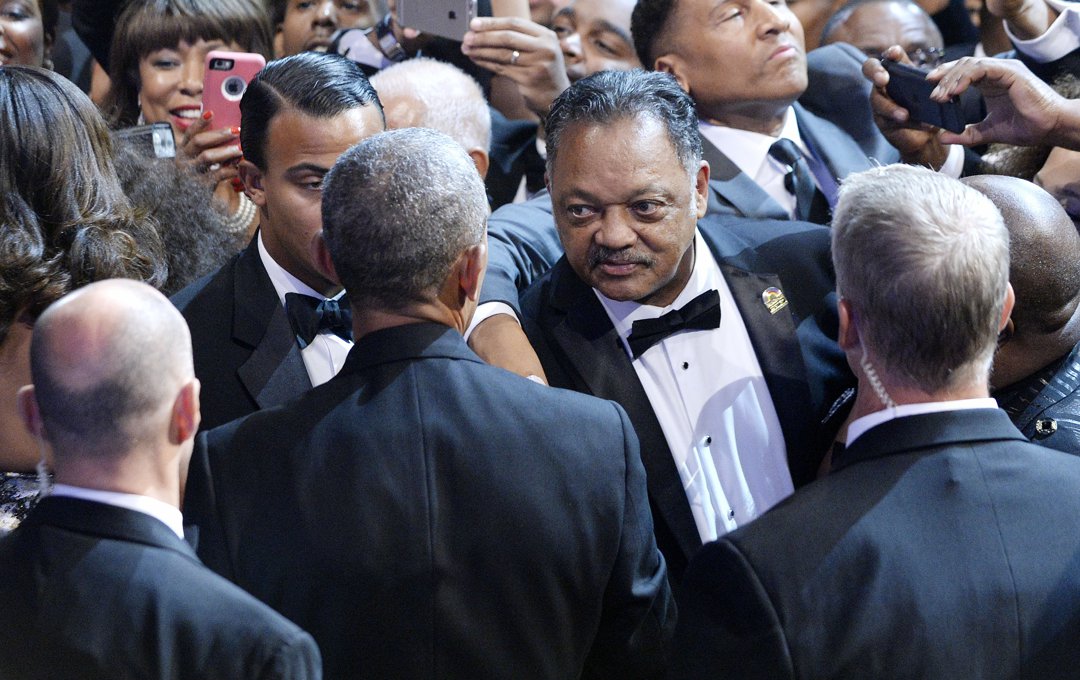
Barack Obama greets Jesse Jackson at the Congressional Black Caucus (CBC) Foundation's 46th Annual Legislative Conference on September 17, 2016 | Source: Getty Images
It was not joy alone. It was grief and reflection. "Many of my friends and leaders — Dr King, Bobby Kennedy, Malcolm X — were assassinated," he once said.
When asked what life had taught him most importantly, he shared this perspective. "If you fall behind, run faster. Never give up, never surrender, and rise up against the odds," he shared.
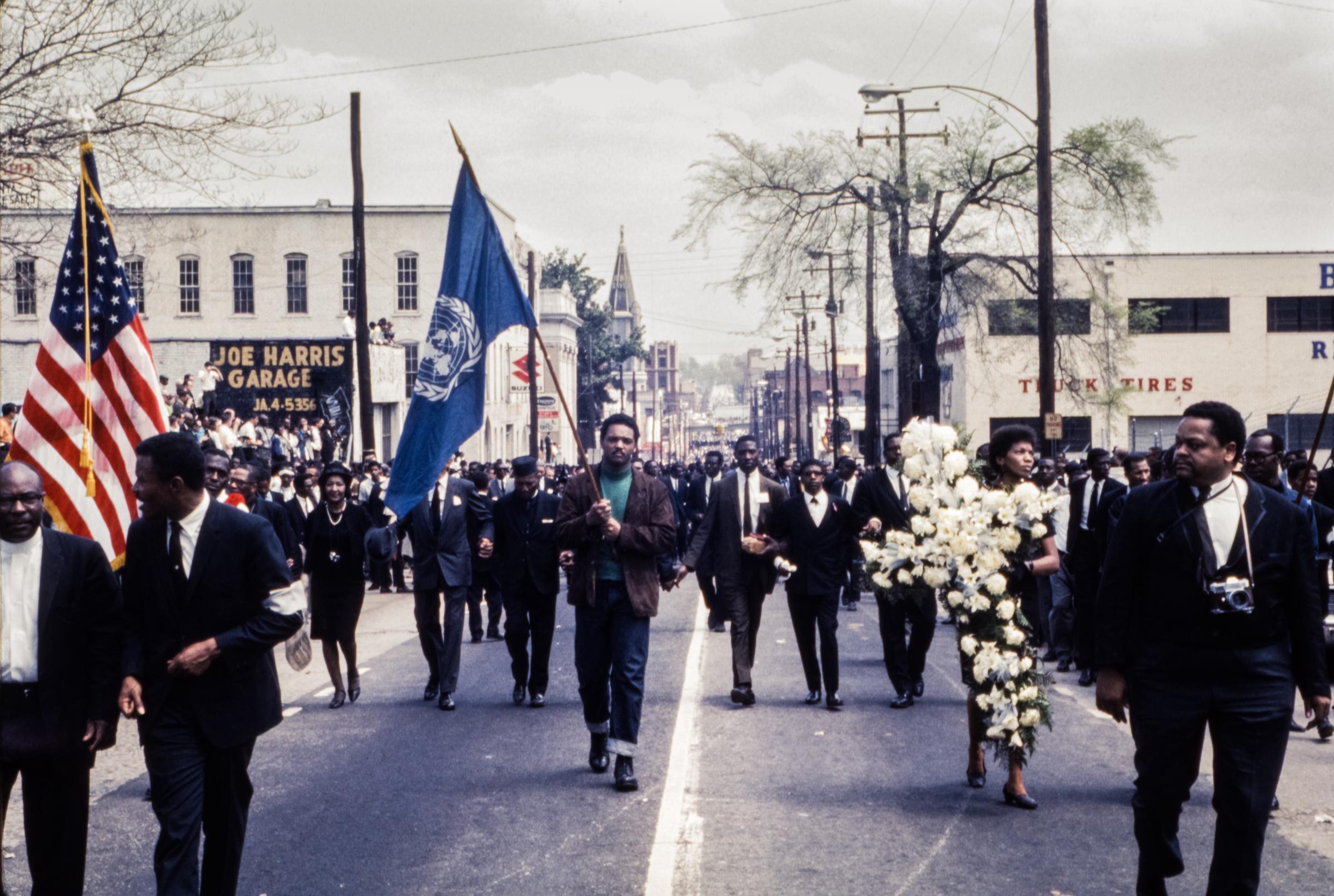
Jesse Jackson carries the United Nations flag in the funeral procession of Rev. Martin Luther King, Jr. on April 9, 1968 | Source: Getty Images
Rev. Jesse Jackson is no longer standing before crowds or marching through city streets. He is in a hospital room in Chicago, his family watching, his body failing. But his presence, his legacy, his fire — none of that has faded.
